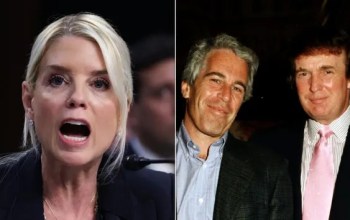The Trump administration has announced a significant rollback of food import tariffs in an effort to ease rising grocery costs that continue to strain American households. The decision affects a wide range of goods, including coffee, bananas, beef, and several other essential food products. As prices for everyday staples climb higher, the White House is positioning the tariff cuts as a targeted strategy to fight inflation and stabilize the food supply chain.
The move marks a notable shift in President Donald Trump’s long-standing stance on tariffs. Throughout his earlier term, Trump consistently argued that tariffs did not contribute to inflation. However, with the price of beef surging between 13% and 17% year-over-year, bananas climbing around 7%, and overall food-at-home inflation rising approximately 2.7%, the administration is now under pressure to deliver immediate relief. Reducing tariffs, especially on highly imported goods such as coffee and tropical fruits, is being framed as a practical solution to lower costs throughout the distribution chain.
According to administration officials, the U.S. has reached new agreements with several Latin American countries, including Argentina, Ecuador, Guatemala, and El Salvador. These deals aim to reduce import duties on major food items, most notably Argentinian beef and Central American coffee and bananas. By easing restrictions and lowering costs at the border, the government hopes to boost supply, increase competition, and ultimately drive prices down for American consumers.
Still, economists warn that the effect of tariff cuts may be limited. Grocery inflation is driven not only by taxes on imports but also by supply chain disruptions, transportation costs, labor shortages, and global market instability. While lowering tariffs could reduce some financial pressure, experts caution that retailers may not pass all savings directly to consumers. Food distributors, grocery chains, and logistics networks may absorb part of the cost reduction to offset their own rising expenses.
The policy shift has also triggered concerns among U.S. farmers and domestic producers. Some agricultural groups argue that cheaper imports could undercut American beef and produce, giving foreign suppliers a competitive advantage. Critics say that while consumers may benefit in the short term, the long-term impact on domestic agriculture could be harmful if market conditions push local producers out of business.
Politically, the timing of the decision has sparked debate. With grocery prices ranking among voters’ top economic concerns, the tariff rollback is widely seen as an attempt to address public frustration before it intensifies. Supporters applaud the move as a necessary step to reduce food inflation, while critics accuse the administration of reversing its tariff philosophy in response to mounting political pressure.
As the tariff cuts take effect, Americans will be closely watching their grocery bills to see whether the changes deliver meaningful relief. The coming months will reveal whether Trump’s new trade approach can truly temper rising food prices—or whether deeper structural issues will continue to push costs higher.
Watch video below :













